Are you interested to learn how to scuba dive for the very first time? Do you want to know what to expect before you metaphorically (and physically) jump in? As a passionate yet relatively new diver, I hope to encourage you with your diving journey!
Scuba diving is very important to me because I care deeply about the beautiful ocean and marine life. I love experiencing how incredible this underwater world feels on each and every dive and so I am writing this article as an introductory guide to help you join us as a scuba diver!
Learn to Scuba Dive
To learn to scuba dive, you can jump right into your Open Water course which will give you a license to scuba dive all over the world. This is quite a full-on course but it provides you with all of the information and skills that you need to know to learn to dive.
However, if you are not sure if you are ready to be a certified and licensed diver, then guess what! There is a way to try out how it feels to dive with introductory courses such as Try Dives and Discover Scuba Diving programs. That’s right! You can learn all the basic skills with an instructor who will take you on your first SCUBA adventure.

Scuba Diving Basics To Learn
Regardless of whether you jump into your Open Water certification or just dip a toe into the water with a simple try dive, you will need to know the basics when you first learn to scuba dive. Let’s check them out!
What is Scuba Diving?
SCUBA stands for Self-Contained Underwater Breathing Apparatus and is a sport where you use the air from your tank to breathe underwater so you can explore a whole new world! Scuba diving is a relatively new sport and learning this skill is exciting and challenging for every new diver. When you start to read about diving you might quickly find yourself overwhelmed with the idea that it is too hard for you, but don’t be discouraged. Learning to dive is achievable and has two major components – theory and practice. You will have access to all the theory materials you require to study and learn in the classroom as well as a qualified diving instructor who will teach you the practical skills you need.
Practical Skills To Learn To Scuba Dive
Acquiring the basic skills needed for scuba diving is a step-by-step process of which you will be guided through prior to going into the water. Once ready, you will learn and test your skills in a confined body of water such as the shallow area of a swimming pool. This is one of the most exciting parts for beginner divers; taking that first breathe under the water! So, what exactly are the basic practical skills you will learn before you go diving for the first time? Check out the list below to learn more.
Breathing Underwater
It may seem strange to imagine that you can breathe through a mouthpiece and stay under the water using the air from your tank – but this is exactly what you will learn to do! Discovering this feeling is one of the most unusual yet fun parts of the diving experience. Instructors will show you how to breathe using what is called a regulator (mouthpiece).
Mask Clearing Skill
This is something new divers often worry about; the idea of trying to clear the fog or remove water that has come into the mask during the dive. It may seem scary but don’t worry as your instructor will demonstrate this skill for you to practice and copy and it is not very hard.
Read More: Our best tips for clearing your mask on a dive!
Hand Signals
Throughout the duration of your dive, you and your diving buddies and guide will use a set of pre-learned hand signals to talk with each other under the water.
Emergency Skills
In a basic course, you will learn some introductory skills in case of an emergency. Your instructor will teach you in the confined water in the shallow – how to respond so that you do not worry when you are diving. Emergency skills are an important part of your training.
Equalizing
One of the most common concerns for beginner divers is regarding their ability to equalize under the water. Your instructor will inform you of different techniques for relieving the pressure; most commonly within your ears. This can be as simple as blowing your nose whilst pinching it just like clearing your ears on a plane.
Be Informed: The Different Methods to Equalize Ears
Buoyancy
As a beginner scuba diver, you will hear a lot about buoyancy, and it is something that you will continue to master and learn to control throughout your diving practice. Don’t worry, you are not alone, all divers are fitted with their very own BCD or Buoyancy Control Device to wear during the dive. This amazing underwater device is going to assist you with your ability to control your buoyancy (floating up and down underwater) so that you can be comfortable and relaxed as you dive.
Find out: How Do Scuba Divers Go Up and Down?
Comfortability in the water
Scuba divers who are taking a basic course can dive to depths of 12 meters and see all the beauty of the coral reefs. If you decide to take the Open Water Certification you are certified to dive to 18 meters. From the moment you go under the surface of the water, you will be immersed in the beauty of the ocean and be able to get up close with marine life that you may have never seen before!
Physical Requirements
If you are participating in a try dive program, a non-swimmer can still learn to dive though it is suggested you feel comfortable in open water. It is recommended that those seeking certification can swim and are comfortable in the open water as there is a swim test in the course. You can read more about the requirements for swimming for divers.
No prior experience is required to scuba dive, but you will need to be in reasonable physical health. The age requirement at a minimum is usually from age 12 years depending on the program and there is currently no maximum age.
Your First Experience Diving
A confined body of water allows you to safely learn the required basic skills you will need for your first dive. According to PADI, beginners can start with a Discover Scuba Diving program where you will learn how to get familiar with your diving gear and move around in the water. Under the close supervision of your instructor, you will learn how it feels to breathe underwater, learn the key skills for a dive and then start having fun exploring.
I personally tried a try dive program where I was able to ask my instructor many questions and try on the diving equipment at my own pace. I spent a few hours in confined water with my instructor learning the basic skills and once I was ready, I went out for my first ever open water dive in the calm clear waters of Banda Neira Island in Indonesia. I loved learning how to dive so much that I continued diving and gained my certification.
The First Two Certification Levels: Scuba Diver vs. Open Water
If you are taking an Open Water Certification then the same concept applies and you will perform the required skills in confined water with your instructor. There are multiple agency options for certification with popular courses for divers including PADI, SSI, NAUI, RAID, and more! Courses require coursework where you will read the basic theory and learn the content in the classroom. Each skill is then taught and practiced in confined water prior to diving. Each student must complete 4 dives in the open water with their instructor and pass a final exam to receive certification!
Being Prepared to Learn How to Dive
To learn to scuba dive is not easy or hard as it is not complicated in theory. Everything will be taught to you whether you choose a try dive program or a certification license. In practice, the skills you learn need to be applied and then the individual diver needs to remain calm. My diving instructor taught me that ‘fear is healthy and very normal – but panic is dangerous’. If you have a fear or a concern about diving, try talking to an instructor at a diving center. The first step to learn how to scuba dive is to be prepared which you now are after reading this article! Education is key and once you develop and practice your skills you can relax during your dive and be blown away at everything you see with your new diving buddies.

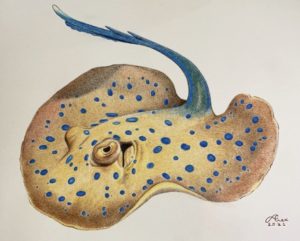
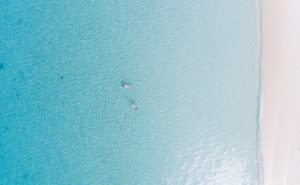

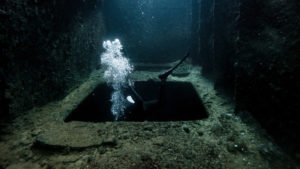
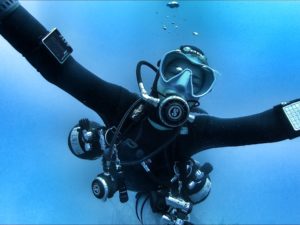
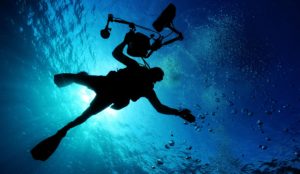
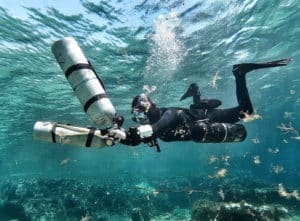

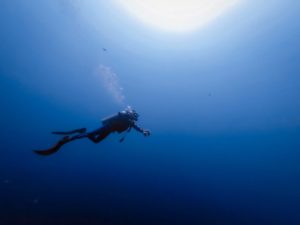
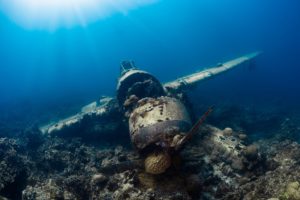
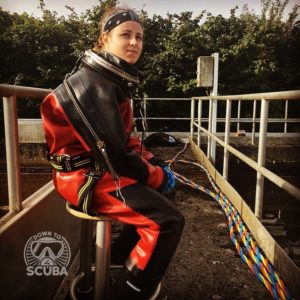


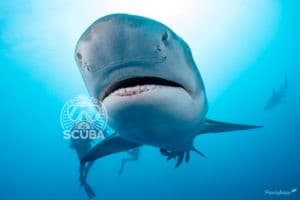
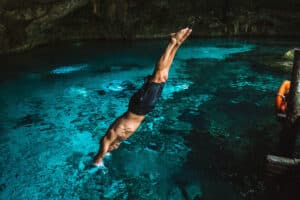
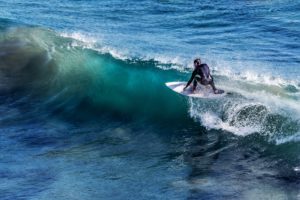
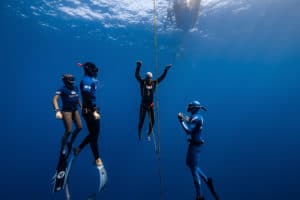
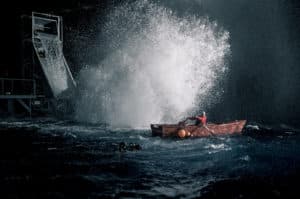
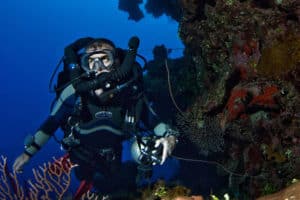
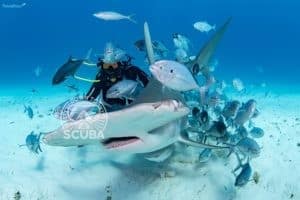
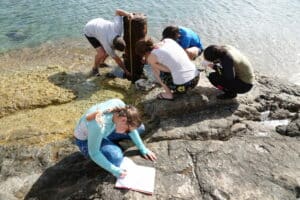

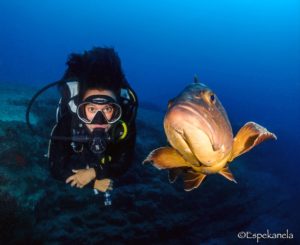
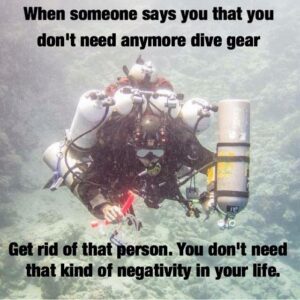
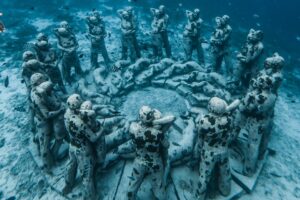
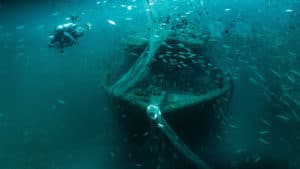
Leave a Reply
You must be logged in to post a comment.